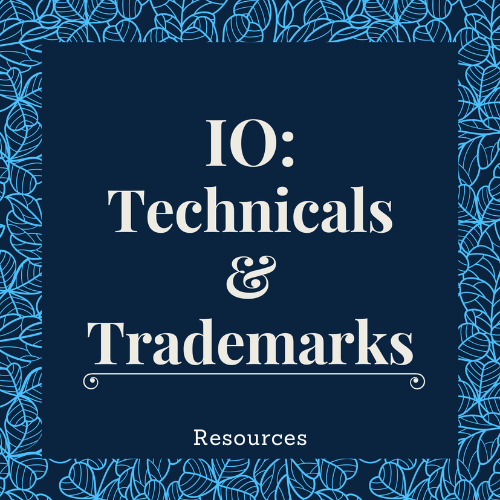IO: Technicals & Trademarks
Under the hood, .IO also appeals to developers as it is a TrueName extension, meaning it boasts an extra layer of protection against phishing attacks. Being a country code top-level domain (ccTLD) also should not affect the ability of your .IO site to rank in search engines globally. As the major search engines are on record as stating that all extensions are treated equally by the crawlers (the bots, not the esteemed pillars of the community over at search engine corp).
popX domains set in .IO, as in other extensions, have undergone scrutiny for trademark infringement, but we are not lawyers, and intellectual property law as it applies to domains is a constantly evolving sphere. Please do the necessary due diligence before purchasing any domain asset, or raise the issue with your popX Facilitator and they will provide onward guidance.

Dictionary words not (typically) subject to UDRP actions
Since June 2020, filings involving .IO domains can be made under the Uniform Domain Name Dispute Resolution Policy (UNDRP), albeit through a modified version of this policy. The UNDRP is the main tool for resolvinig domain disputes and its processes come under the jurisdiction of the World Intellectual Property Organization (WIPO).
Many of the popX .io domains are composed of a single keyword, which is the optimal way to use the .IO for effective branding. Doing so also provides an extra layer of protection against potential disputes concerning your brand.
This is because, under the current legislation at the time of writing, single dictionary word domains are NOT subject to trademark disputes, at least in the main. Or put more precisely, it is exceedingly difficult for a complainant to claim the outright rights to an accepted dictionary word in (at least relatively) wide use.
This does not mean that you can pick up Apple.io and start selling iPods. But it does, at least in theory, allow you to use ‘apple’, ‘orange’ or ‘mango’ as your brand in a niche where homonymous firms do not ply their trade. Doing so may be a risky move for all but the deepest-pocketed, but that’s another matter.
Recent trademark trends
UDRP cases involving dictionary words are these days typically fought out between two companies that each have marks connected to a particular word. So, they’re vying to be the one to own as much of the brand equity of that word as possible (in the strongest domain extensions). There are many types of marks, and over forty fields in which they can be sought, so firms large and small tend to run into each other.
The past years has also seen a move by top players to cement the their brand with the domain. So, for example, the owner of a domain like Priers.com might see the benefit of pressing the advantage to be had in their field by holding the .COM. They then look to reinforce this position by seeking, in addition to their marks for the term ‘priers’ and any slogans, etc., a mark for ‘Priers.com’ itself.
It is an interesting one, and useful to note for holders of strong non-com extensions like .IO, as savvy future-focused firms will often include the ‘.IO’ as an integral part of the brand. So, the holder of Musket.io, for example, brands themselves as such in all their literarure and so sees an advantage to now at this point lock down the the mark for ‘Musket.io‘. Knowing that there may well be a multitude of ‘Musket’ brands ten years from now, and that the .IO domain may be even more of a flex by then. IP law, as in life, rewards those who make their mark early.
If you are dealing with issues involving domains and trademarking, a general IP lawyer will likely be able to provide the necessary support. But trademark law as it relates specifically to domains is becoming an increasingly popular specialization in its own right, and there are a small number of niche firms that have become well known within the domain industry.